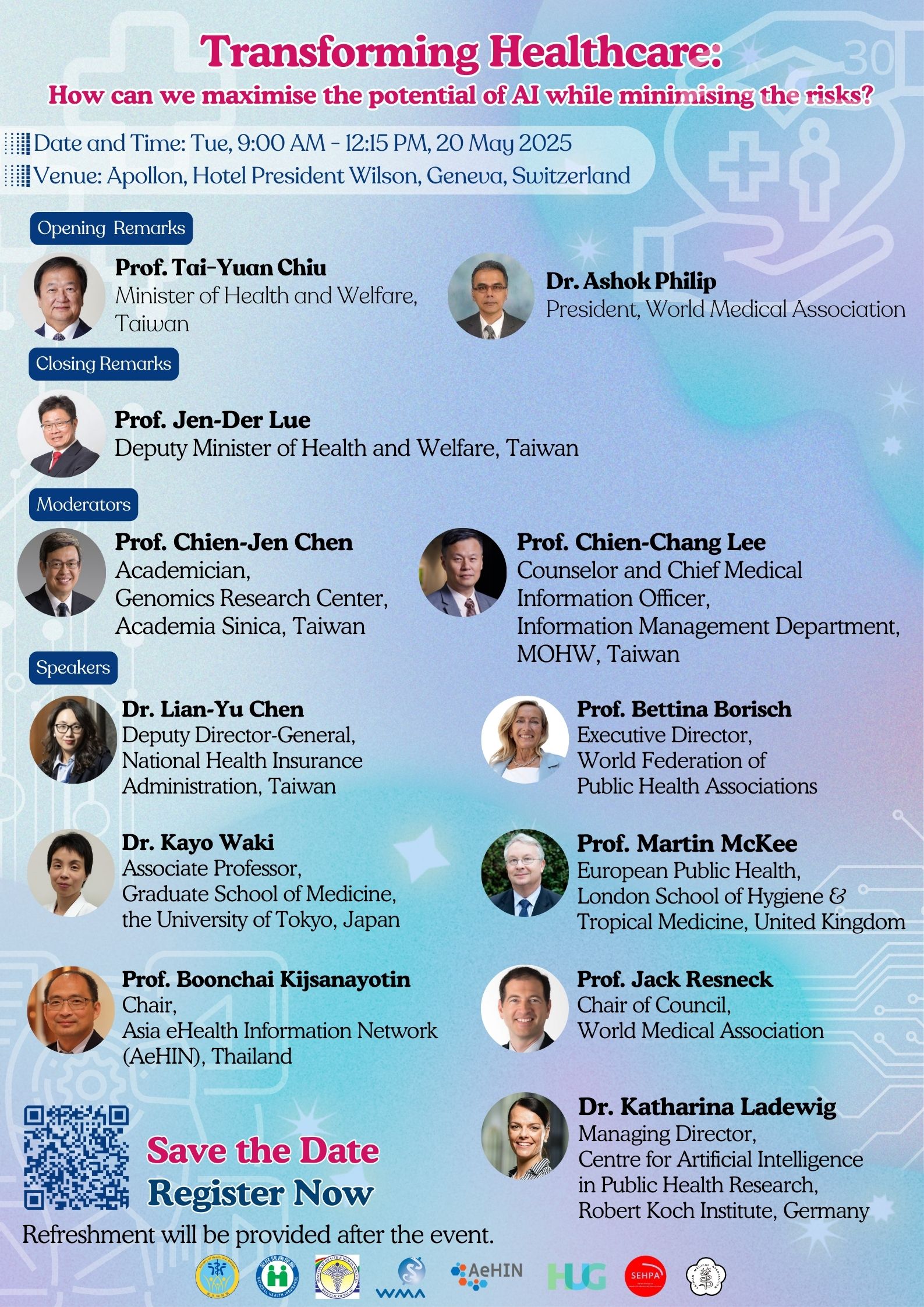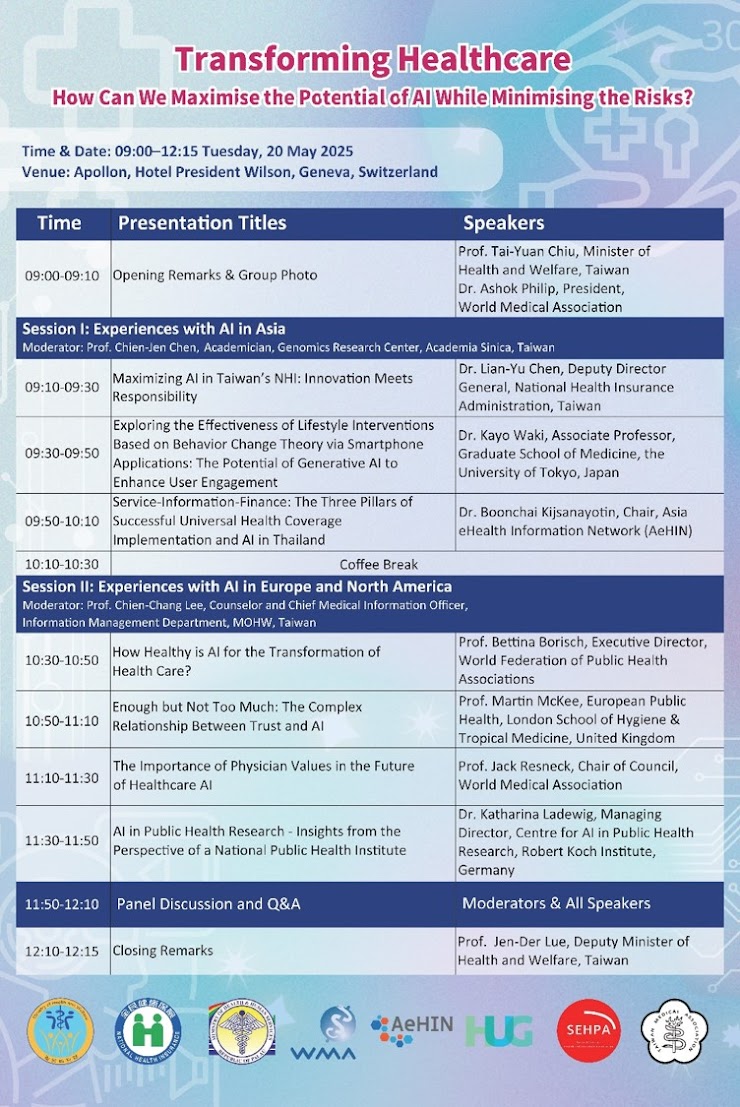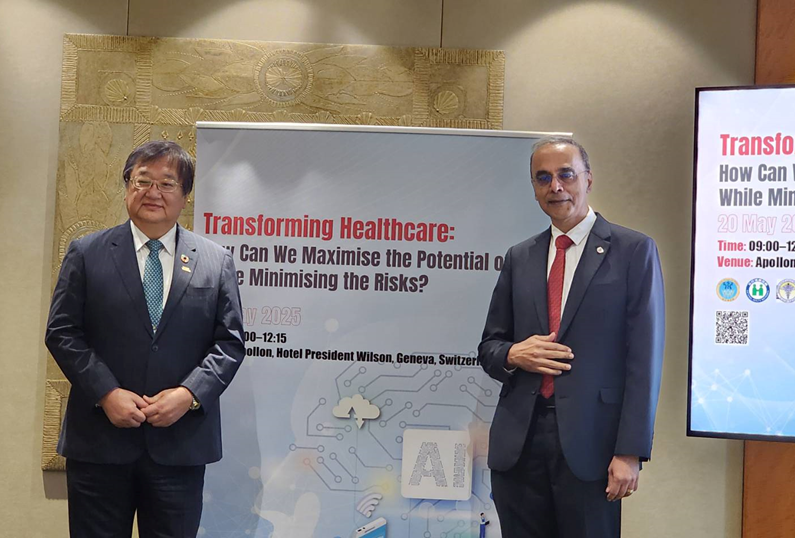

This year, Taiwan's Ministry of Health and Welfare and the National Health Insurance Administration (NHIA) co-hosted the international forum "Transforming Healthcare: How Can We Maximise the Potential of AI While Minimising the Risks?" on the morning of May 20 (Geneva time) in Geneva, Switzerland. The event was held in collaboration with the World Medical Association (WMA), Asia eHealth Information Network (AeHIN), and Geneva University Hospitals (HUG), among other international partners, launching a global dialogue on health.
Coinciding with the World Health Assembly (WHA), this forum served as an opportunity for Taiwan to actively engage in international health discussions and demonstrate its ongoing contributions and commitment to global health. The forum centered on the applications and risk governance of artificial intelligence (AI) in healthcare systems, gathering experts and scholars from Taiwan, Japan, Thailand, the United States, the United Kingdom, Germany, and Switzerland to exchange practical experiences and policy perspectives across borders.
The opening ceremony featured speeches by Minister of Health and Welfare Dr. Chiu Tai-yuan and WMA President Dr. Ashok Philip. Minister Chiu emphasized that Taiwan has achieved near 100% universal health coverage through its National Health Insurance program. While AI is a powerful tool for healthcare transformation, he stressed the importance of upholding a people-centered approach, stating: "AI development must be grounded in equity, trust, and ethics to ensure no one is left behind."
The first session focused on Asian experiences. It began with opening remarks by Academician Chen Chien-jen, followed by a presentation from NHIA Deputy Director General Dr. Liang-Yu Chen, who introduced Taiwan's use of AI and big data in developing precision medicine for various diseases. Associate Professor Kayo Waki from the University of Tokyo discussed how generative AI can enhance patient engagement through smart health applications. AeHIN Chair Dr. Boonchai Kijsanayotin emphasized the need to align "service, information, and financing" to promote universal health coverage and leverage AI to enhance healthcare accessibility.
The second session shifted to perspectives from Europe and the United States. Professor Bettina Borisch, Executive Director of the World Federation of Public Health Associations (WFPHA), explored the pros and cons of AI in healthcare transformation under the theme "How Healthy Is AI for Healthcare Transformation?" Professor Martin McKee of the London School of Hygiene and Tropical Medicine (LSHTM) cautioned policymakers to safeguard doctor-patient relationships and societal trust while embracing technological innovation. Dr. Jack Resneck, Chair of the WMA Council, highlighted the enduring value of physicians in the future of AI-driven healthcare and the need to preserve clinical professionalism in the digital age. Dr. Katharina Ladewig, Director of the Public Health AI Research Center at the Robert Koch Institute in Germany, shared insights into AI applications in public health research.
Closing remarks were delivered by Vice Minister of Health and Welfare Dr. Chien-Te Lyu, who underscored that AI is a partner in the journey toward digital transformation, and that the ultimate goal is to build a more inclusive, equitable, and resilient healthcare system. This forum demonstrated Taiwan's determination and capability to continue contributing to global health governance. Through international dialogue and collaboration, Taiwan aspires to become a global leader in smart healthcare.

